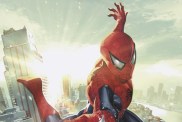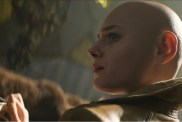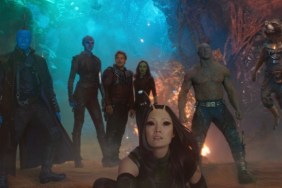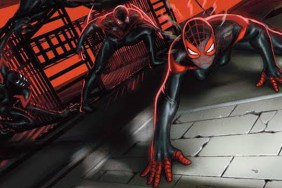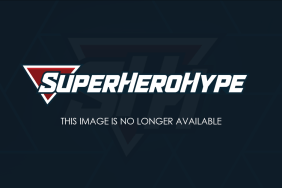
(Author’s note: Spencer’s Soapbox is a weekly column here on SHH where yours truly tries to spur a conversation on specific topics. Dive in to the latest installment below and check out the previous ones by clicking here.)
Last week, the American Library Association released its list of the top 10 “Frequently Challenged Books” of 2014, and on that list were three comics: Persepolis by Marjane Satrapi; Drama, by Raina Telgemeier; and Saga, by Brian K. Vaughan and Fiona Staples. Granted none of these are specifically about superheroes, but my love for the medium goes beyond just capes and cowls, so this is going to be a different kind of soapbox. The ALA comes to collect this list by tallying the books that have received the most complaints over the year, and they define a complaint as such: “a formal, written complaint filed with a library or school requesting that a book or other material be restricted or removed because of its content or appropriateness.” What makes this list even better is they provide the reasons people find the content objectionable, most of which are laughable and show no knowledge of the context of these types of stories or any understanding of their importance.
For the purposes of time, I want to focus on the inclusion of Saga on this list, but rest assured I think it’s absurd that both Persepolis and Drama are also included as the complaints levied against them are totally unfounded to someone that’s actually read the material. Saga, if you’re not familiar with it, is a comic series that to date has won 6 Eisner Awards (recently nominated for three more), 6 Harvey Awards, and the 2013 Hugo Award for Best Graphic Story. It’s an epic sci-fi/fantasy series that tells the story of the winged Alana and the horned Marko and their winged and horned daughter Hazel. So far in the series we’ve seen planet-sized eggs, giant fire-breathing turtles, specter babysitters, and a cat that can tell when people are lying. It is consistently one of the best comics released every month and is always within the top 25 selling comics. There is no denying the quality of the book.
So what about Saga managed to get this comic on the list of most-challenged books? The cited reasons read as follows: “nudity, offensive language, sexually explicit, and unsuited for age group.” This is where I point out that just because something is a comic book does not mean that it’s necessarily for children, something that has been true for decades at this point. In fact, Saga is clearly marked on each issue, trade paperback, and hard cover as being for “Mature” readers. Just like there is no dispute about the quality, I won’t tiptoe around the fact that it deals with subjects and themes that are definitely not for kids, and on more than one occasion has been blocked from a digital release due to the sexual nature of some panels (which is an entire soapbox to itself). It’s also totally within the realm of reason that people don’t want their kids to read this type of material, that’s up to them, but to write a complaint asking a library to pull it from their shelves so others can’t read it either? Best to examine your priorities if limiting the availability of art is at the top of the list, especially art that is fully aware it’s not for young eyes.
There’s another reason that Saga was put on this list, which is what birthed this entire piece. It was found objectionable because some parties claim it to be “Anti-Family.” This is like claiming that The Sound of Music or The Wizard of Oz are anti-family, it is fundamentally wrong on every level and shows zero comprehension of the source material. The entire point of Saga is that it’s a story of a family trying to survive, to grow as a unit, to learn to love each other, to work past their problems, and to make life through all of its dysfunctions work out. They may fight, but all families do, there might be alienation between some of the characters and their parents, but that happens in real life. Marko and Alana’s entire relationship is built on the fact that what they’re doing is seen as an affront to the entire culture of both of their planets but it’s their daughter that binds them together and allows the story to continue. Their love is one of the countless reasons that readers are able to have empathy and root for them, to keep reading. Perhaps it’s that they don’t have the “Traditional family structure” in Saga is why folks think the comic is “Anti-Family,” but families don’t fit into a “Leave It to Beaver” mold anymore and fiction shouldn’t be punished for imitating life in that regard.
Comics like Saga are important for a variety of reasons. They continue the tradition that comics are a medium, not a childhood past time. The fact that it’s long form allows it to tackle any number of different subjects, and in just 27 short issues it’s already touched on dozens from sex trafficking to prisoners of war and the ethics of hitmen to the function of royalty in the modern world. Saga will be talked about, studied, and ripped off for years to come, and it’s going to continue being relevant. It’s going to keep winning awards and it’s going to keep challenging the status quo. It’s fine if someone doesn’t want to read it, that’s their loss, but to say that something this good and this important doesn’t belong in the hands of readers around the country is absurd. Plus, to assert that it presents an agenda wholly opposite of its intention is no fault of the comic’s but of a clueless reader.



